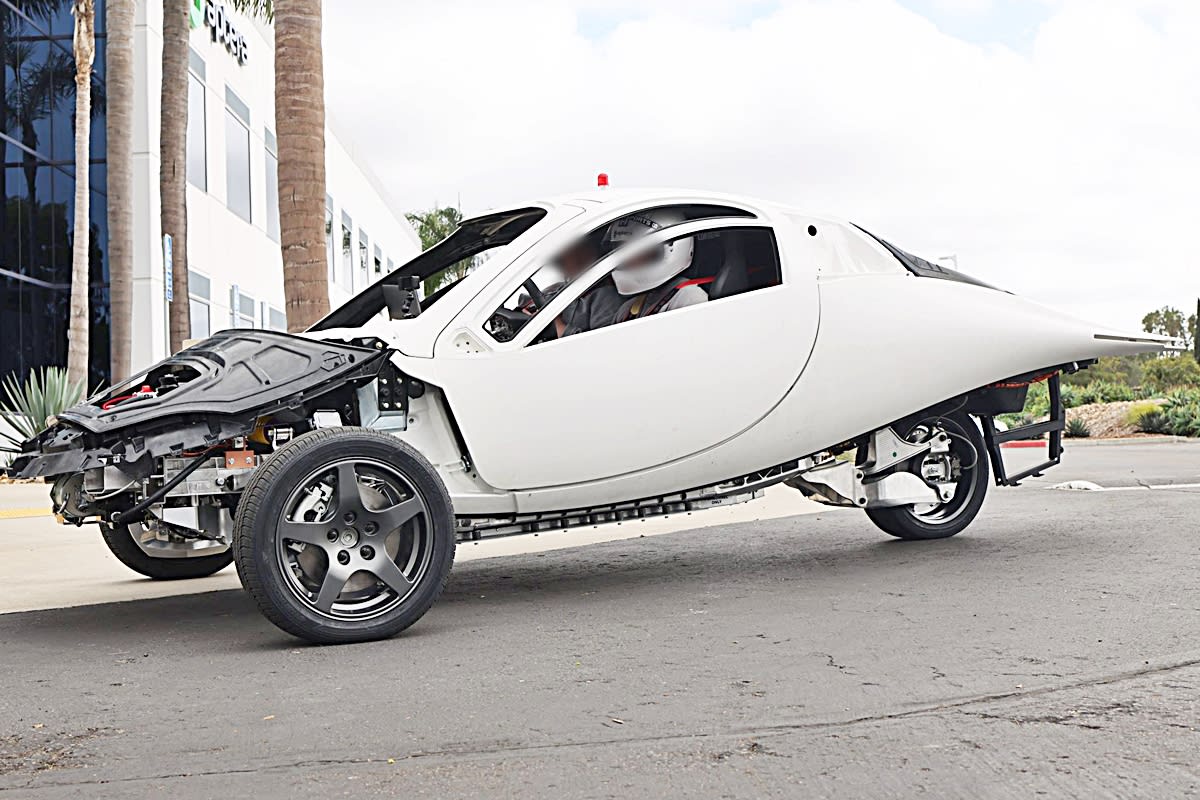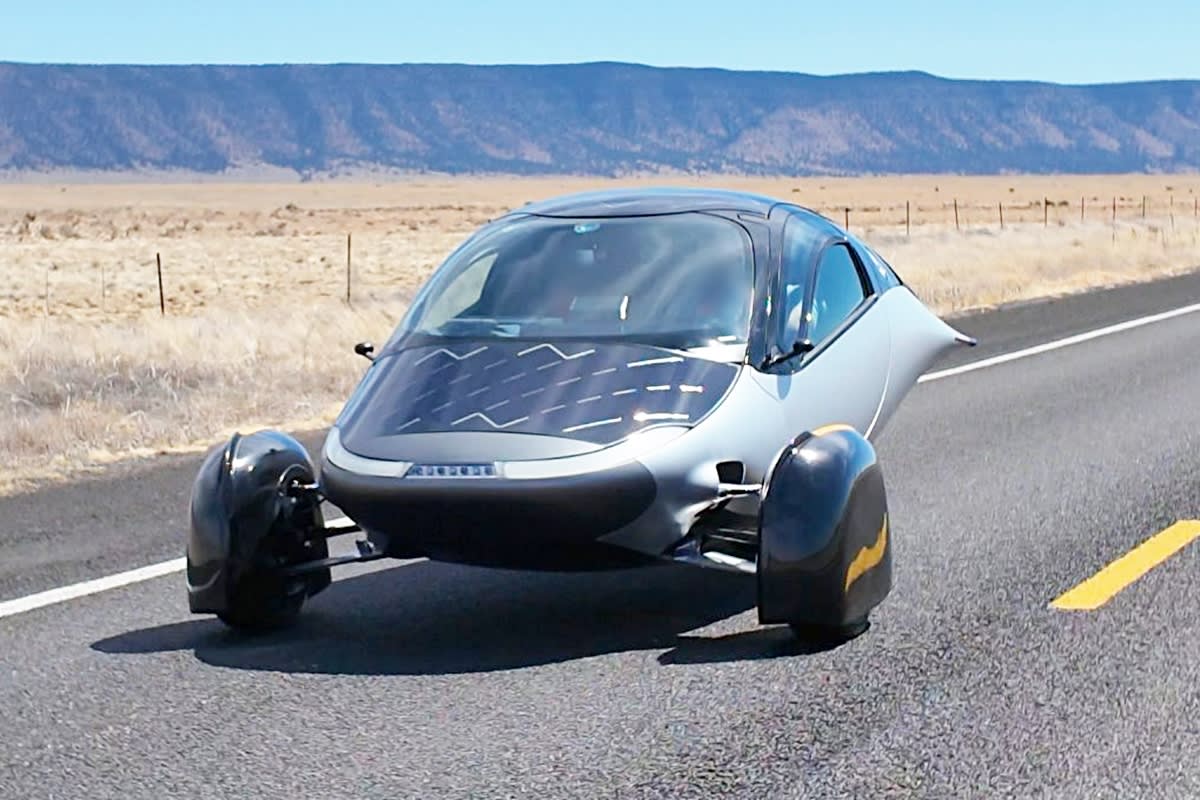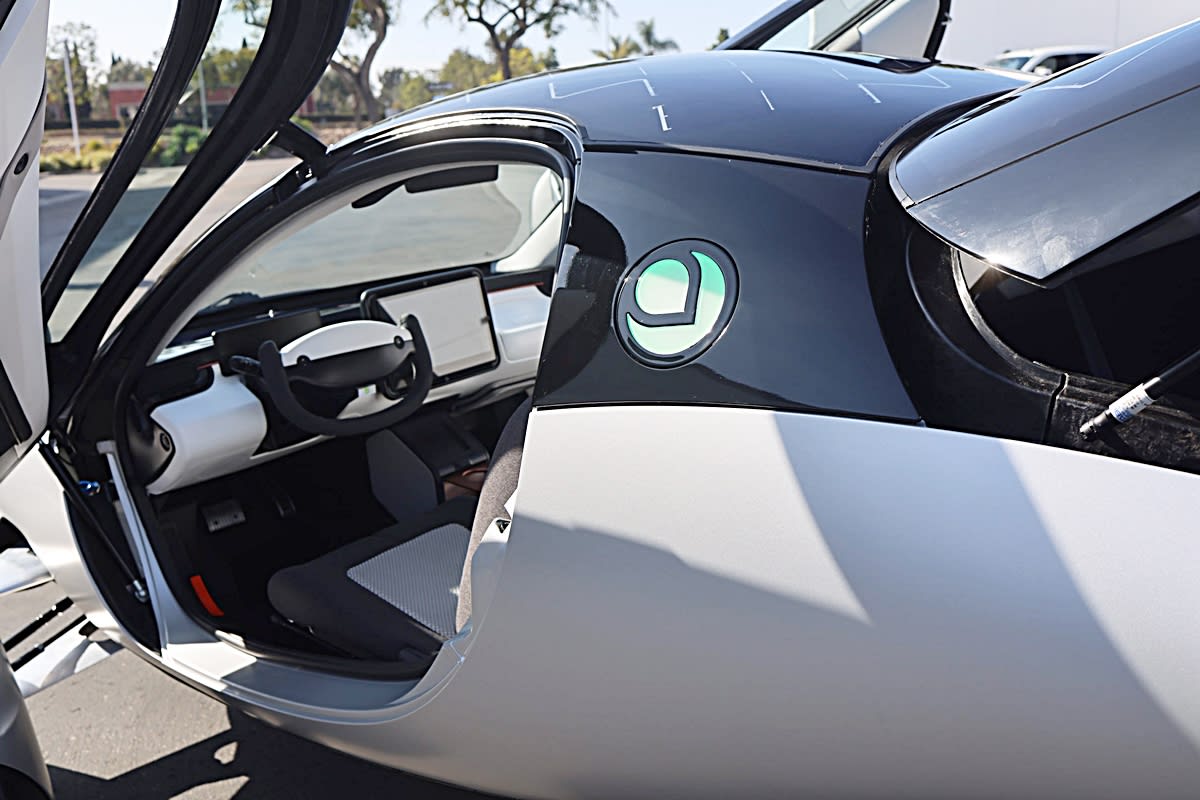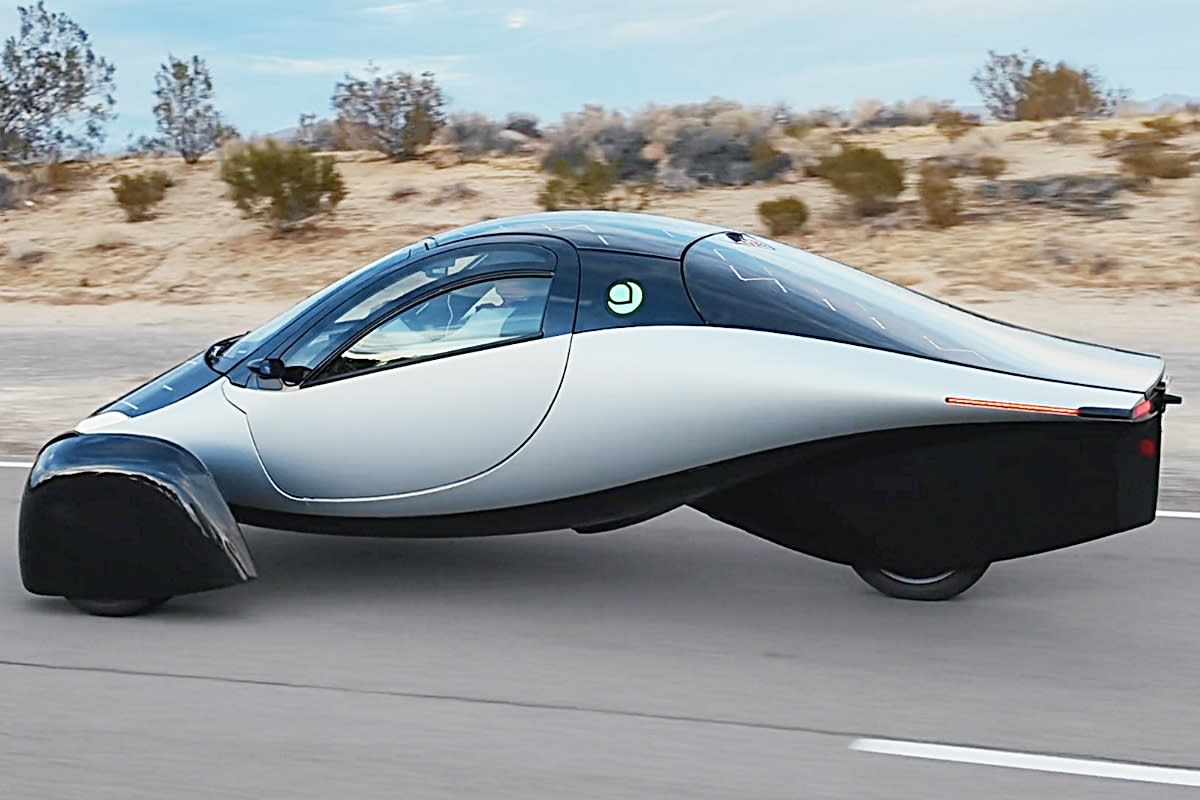American electric car maker Aptera Motors has moved closer to achieving its goal of producing a vehicle that doesn’t require plug-in charging. Recently, they successfully finished testing their solar-assisted electric prototype called the Aptera (series: PI-2). This achievement demonstrates that their advanced EV technology functions effectively in practical scenarios.
In contrast to typical electric vehicle makers, Aptera adopts a distinctive approach centered around reducing weight and enhancing energy efficiency. The almost ready-for-production sample showcases an aerodynamic shape modeled after airplane aesthetics along with a built-in solar panel system. This creation from Silicon Valley marks a fresh path for future electric vehicles.


Enhancing Productivity: A Sleek Three-Wheeled Configuration
The Aptera distinguishes itself with its distinctive three-wheeled design and ultralight composite structure, resulting in a kerb weight of around 800 kg (1,764 lbs), making it more than 50% lighter compared to most electric vehicles. Its drag coefficient of merely 0.13 Cd provides aerodynamics similar to those found in airplanes.
Primarily, solar panels installed on the roof, hood, and tailgate can produce as much as 700 watts of power. This enables the car to cover up to 64 kilometers (40 miles) each day solely through solar energy. The total driving range of the Aptera, based on the chosen battery option, can extend up to 1,600 kilometers (approximately 1,000 miles). Consequently, this greatly diminishes reliance on conventional charging methods.
Purchasers have the option to select either front-wheel or all-wheel drive setups. The Aptera achieves a speed increase from 0 to 100 km/h (0 to 62 mph) in approximately four seconds. Inside, it features a streamlined, technology-focused interior equipped with a touch-sensitive control panel and a digital instrument cluster aimed at user-friendly operation.


A Step Nearer to a Charge-Free Tomorrow
This extensive trial represents a significant checkpoint in Aptera’s journey towards widespread manufacturing. The findings underscore the prototype’s effectiveness and capability of generating its own power, highlighting its promise for daily applications. Further assessments across different velocities and climatic settings remain upcoming.
Aptera intends to start delivering vehicles in the U.S. by late 2025, with base prices set around $26,000. The company’s objective is to cater to daily city driving through the use of solar power and also allow for extended trips without depending on public charging stations. By doing so, this vehicle has the potential to redefine our approach to individual transportation.
The debut of the production model remains uncertain due to potential obstacles. Concerns about quality, safety, longevity, and international approvals persist. However, this positive trial indicates that Aptera’s charge-less approach extends beyond theoretical concepts; it represents an actual progression towards a novel type of electric vehicle. The entire automobile sector is eagerly observing if Aptera has the capability to reshape the market segment.
[ecosundiaries.com] Newest posts!
・
Is This the Most Affordable EV Taxi So Far? BYD’s New e7 Is Designed for Functionality, Not Flashiness
・
This Futuristic Solar-Powered Vehicle Just Covered 300 Miles – Here’s Why Tesla Might Want to Take Notice
・
China Sees 2025 as Pivotal Year for Self-Driving Cars With $500B Market Predicted